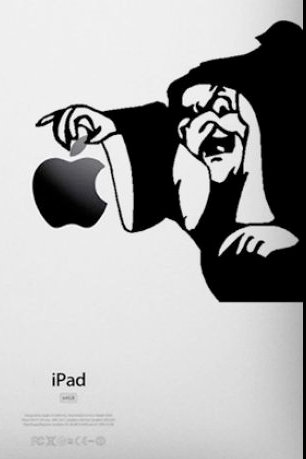As in previous years, I have nothing useful to say about the draft because I don’t follow US college football — I don’t know the Heisman Trophy winner from the redshirt freshman at your local junior college. I’m so uninvolved that I won’t even catch the TV coverage.
My favourite team, the Minnesota Vikings, have eight picks in the draft (before the traditional horsetrading gets underway), and were expected to pick a cornerback in the first round (where they have the 30th pick). Yesterday, they signed former Eagle and Jet cornerback Lito Sheppard to a one-year contract, so they’re now expected to pick a defensive lineman . . . or maybe a quarterback (Tim Tebow, anyone?).
Under the circumstances, I did find this Wall Street Journal article quite interesting:
For a league that does many things well, the first round of the NFL draft is a mess.
The league gives its worst teams first crack at incoming college talent in the name of parity, but instead of giving bad teams a leg up, it often forces them to draft players they don’t really need at prices they can’t afford. Many top picks hold out of training camp before they sign, only to end up with enormous contracts that have little to do with their true value to a football team.
What’s more, as this page reported Wednesday, NFL teams have a 50% chance of blowing a first-round pick entirely — the sort of costly gaffe that can set a franchise back for years.
Granted that there is no perfect mechanism available to replace the current draft process, it’s pretty clear that improvements could be made. Gregg Easterbrook has been championing a rookie salary cap for several years, which would move the monster contract negotiations out from initial signing to a later date, allowing teams to pay more directly for demonstrated ability (but even that sort of system could be gamed, of course). As I wrote last year:
The story repeats, draft after draft, as highly touted college stars are taken early in the first round, sign megabucks contracts and then go into the witness protection program. A rookie salary cap would be in the interests of almost everyone: teams, veteran players, and rookies-not-taken-in-the-first-round. The only ones who’d see their situation change for the worse would be the first 32 players taken in the draft (who would now have to prove that they can make the transition to the pro league before being rewarded with big contracts).
Update, 10:45pm: Speaking of horse-trading . . . I just happened to check the New York Times liveblog, and Minnesota has traded their first round pick, #30, to the Detroit Lions. No Viking pick in the first round, but they get Detroit’s pick in the second round, #34 overall, plus a 4th (#100) and a 7th (#214) in exchange. QB Jimmy Clausen had slipped from a speculated top-10 pick all the way to 30, where the NY Times folks were speculating he’d be the Vikings’ pick. Don’t know if he’ll still be there at the 34th pick, or if the Vikings are even interested (the chatter had them interested in Tim Tebow, who went to the Denver Broncos with the 25th selection).




